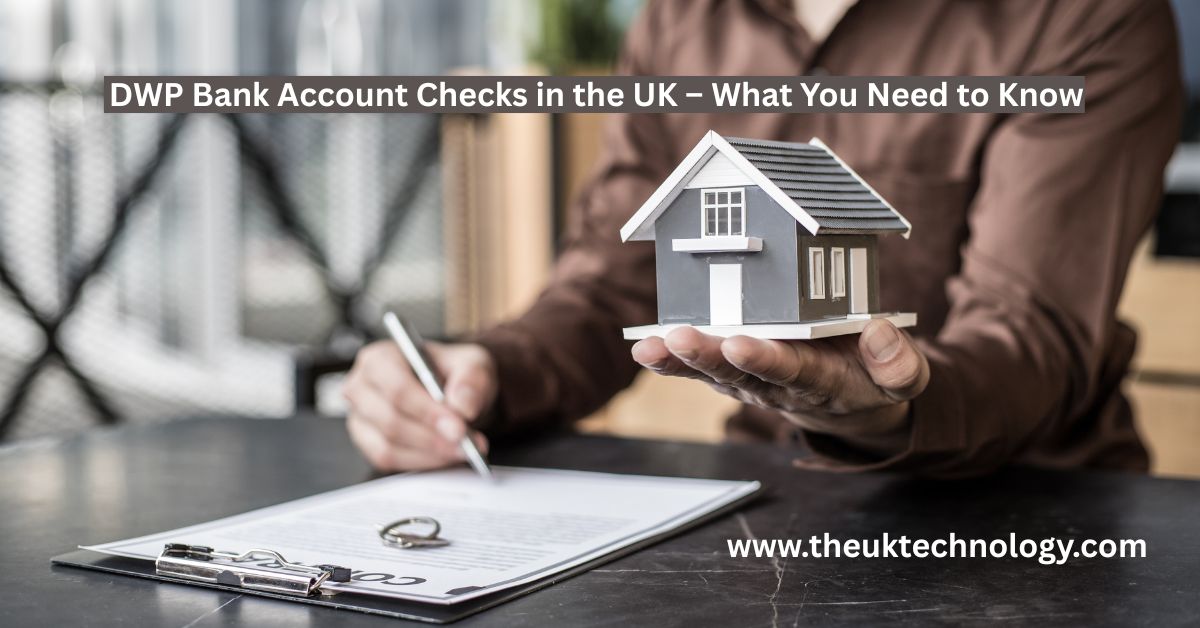DWP Bank Account Checks in the UK – What You Need to Know in 2025
The DWP bank account checks are now more active than ever in the UK. With changes in data-sharing laws and new digital powers, the Department for Work and Pensions has increased its focus on tracking benefit fraud, overpayments, and incorrect claims. This blog explains what these checks are, how they affect you, and what to do if you get DWP benefits in 2025.
What Are DWP Bank Account Checks?
The Department for Work and Pensions (DWP) uses bank account checks to make sure claimants are being honest about their savings and income. These checks help DWP prevent false claims and recover overpaid money.
Recently, the government gave new powers to DWP that allow it to collect data directly from banks in certain situations. These powers aim to reduce fraud and improve fairness in the benefits system.
Why Does DWP Check Your Bank Account?
One of the main reasons DWP checks your account is to confirm you are eligible for the benefits you claim. If you claim Universal Credit, ESA, PIP, or other specific benefits, DWP may look into your financial activity to verify if you’re following the rules.
If your balance seems higher than allowed or if you are receiving income not declared, a check may be triggered.
How Often Does DWP Check Bank Accounts?
There’s no fixed schedule for checks. DWP bank checks are usually based on risk. If your claim has any red flags, you might get reviewed. For example, if someone reports you anonymously or if your spending doesn’t match your income, a check could be triggered.
Most people are checked only when there’s a reason. There is no need to worry if your details are correct.
Can DWP See Your Bank Account Without Telling You?
DWP does not have automatic access to your account. But if there is a strong reason, and if you are involved in a DWP benefit fraud investigation, they may request limited information from your bank. You will usually be informed before a full investigation begins—but in serious cases, they may check first.
DWP Compliance Interviews and Deductions
If something in your account raises concerns, you may be called for a DWP compliance interview. This is a formal process where they ask for proof and explanation of certain transactions. Based on findings, they may send a deduction notice, which means a part of your benefit could be reduced until the overpaid amount is recovered.
Does DWP Check Pensioners and Non-Claimants?
Yes, checks for pensioners receiving Pension Credit or other DWP support may also happen, especially if savings are over the limit. DWP usually considers income from private pensions and other sources.
Even non-claimants may get involved if they live with someone claiming benefits, as household income affects some DWP claims.
New DWP Bank Monitoring System in 2025
From 2025, a new DWP bank monitoring system will allow the department to get alerts on large deposits, hidden income, or unusual financial activity. Although it is still in the early stages of implementation, this digital system is part of a broader initiative to automate benefit checks and detect fraud more quickly.
Warnings and Criticism About DWP Checks
Many campaigners and benefit recipients have raised criticism about DWP’s increasing data access. Some feel that these checks are invasive or unfair to honest claimants. While DWP insists that the system is designed to protect public money, others worry it may lead to stress or delays in payment for those wrongly flagged.
If DWP finds any issues, they may send you a warning letter, requesting you to respond within a specified time limit. Always reply on time to avoid benefit delays.
Conclusion: Stay Informed About DWP Bank Account Checks
In 2025, DWP bank account checks are becoming smarter and more regular. The aim is to make sure the benefits system is fair and that public funds are protected. If you’re claiming any support, always provide honest information and keep your bank activity clear and simple. As long as you obey the rules, you have nothing to worry about.




Post Comment